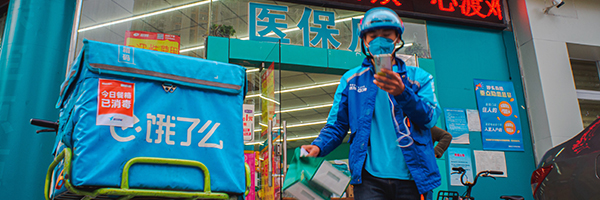This week I expect continued fallout in China from a jump in Covid deaths and demonstrations calling for an end to the country’s 0 Covid lockdown policy.
On Saturday protests spread to cities and college campuses around China, reflecting rising public anger at the country’s Covid controls, with some in a crowd in Shanghai directing their fury at the Communist Party and calling on the country’s leader Xi Jinping to step down.
Saturday’s demonstrations marked the spread of protests on Friday that began in Urumqi, the regional capital of Xinjiang in western China, where at least 10 people died and nine others were injured in an apartment fire on Thursday. Many protesters have blamed Covid restrictions from preventing victims from escaping their homes. The government has rejected those claims.
But the government finds itself in caught in a true bind. Officials have justified lockdowns and limits on movement that have brought parts of China to a halt in recent weeks by claiming that the rules have saved China from the toll of illnesses and deaths experienced in other countries. But a recent spike in Covid deaths, to levels still far, far below levels experienced elsewhere in the world, has led to protests of lockdowns and travel bans recently instituted in cities such as Shanghai and Beijing.
On the weekend before Thanksgiving, China reported the deaths of three people in Beijing. These were the first fatalities from Covid-19 in six months. Beijing reported 962 new infections on that Monday, up from 621 on Sunday. that day The National Health Commission said it had recorded 26,824 local infections across the nation in the prior 24 hours, a total that approached Aprile peaks. On Sunday, November 27 officials reported a record of nearly 40,000 cases in mainland China. This past week global infections decreased 3%, according to Worldometers.info. Deaths decreased by 19% to the lowest total since March 2020.
The New York Times reports that the biggest protest on Saturday appeared to be in Shanghai, where hundreds of people, mostly in their twenties, gathered at an intersection of Urumqi Road, named after the city in Xinjiang, to grieve the dead with candles and signs. Many there and elsewhere held sheets of blank white paper over their heads or faces in mournful defiance; white is a funeral color in China. The numbers grew, while lines of police officers looked on, and chants broke out, with people calling for an easing of the Covid controls, video footage showed. Some used obscene language to denounce the demand that residents check in with a Covid phone app in public places such as shops and parks. Their shouts took on a boldly political edge.
“We want freedom,” protesters chanted, according to The Times.
Some also directed their anger at Mr. Xi, a rare act of political defiance likely to alarm Communist Party officials and to prompt tighter censorship and policing. “Xi Jinping!” a man in the crowd repeatedly shouted. “Step down!” some chanted in response. Many protesters used their phones to record the collective mourning and protests, images that may spread despite censorship, emboldening others to speak out.
Last month, Mr. Xi won a groundbreaking third term as the Communist Party’s general secretary, entrenching his status as China’s most powerful leader.
It’s hard for to me to see any near-term exit from the 0 Covid policy–even if the government was inclined to move in that direction. (Which it isn’t in my read of news out of China’s recently concluded leadership meetings.) China’s domestically developed Covid vaccine is less effective than foreign vaccines that use mRNA technology, but Beijing has not approved the foreign mRNA vaccines for domestic use. Many older Chinese people have resisted vaccination or booster shots, sometimes because they are wary of side effects, believe unfounded rumors about the risks, or feel they are safe from exposure to the virus. Consequently, large numbers of Chinese are either not vaccinated or inadequately vaccinated. This raises the prospect that an end to 0 Covid lockdowns could result in a spike of infections large enough to overwhelm China’s healthcare system.
For investors, the worry is that the surge in Covid infections and the likely government response of imposing lockdowns across huge swathes of the country will slow China’s economy even further. For the third quarter of 2022, the government reported that the economy grew at a 3.9% annual rate. That’s way below the unofficial but widely cited goal of 5.5% growth. New lockdowns would make the government’s efforts to push growth back to 5% in the last part of the year extremely difficult.
On Friday, November 25, the iShares Large Cap ETF (FX) fell 1.71% and was down 2.91% for the week. As China goes, so do many emerging markets. The iShares MSCI Emerging Markets ETF (EEM) was down 047% on Friday and off 0.68% for the week.


